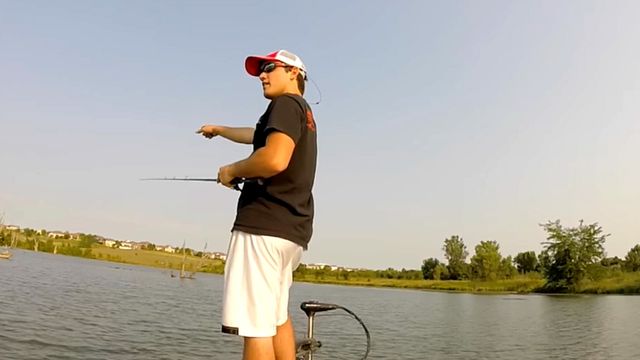
You Don't Own The Water Bro: Fishing Etiquette In 2019
Fishing etiquette is important, especially as fishing pressure rises on our waterways so does the chance for conflict between anglers. From personal experience and more than 20 years of covering bass tournaments for media outlets I have seen or heard of wars of words on the water and in one case a fisticuffs battle between tournament competitors. Issues such as anglers fishing too close to one another or one angler cutting in front of another has led to these wars on the waters.
Fishing should be a fun sport all of the time, but improper manners displayed by some anglers can get a fellow angler’s dander up and lead to a shouting match or worse. When fishing in a crowd we need to remember that no fish is worth getting into a duel of words or punches.
Here are some fishing etiquette tips to help you avoid a conflict on the water with your fellow anglers.
Avoid Cutting In Front Of Others
We were taught in school not to butt in line, so we should remember this lesson when we are on the water. Despite fishing on a lake with 54,000 surface acres I constantly have seen anglers cut their boats in front of me or other anglers. Whenever I am heading towards a spot, if I see another angler close to the spot I check to see which direction his boat is heading. If he is heading towards the spot I intended to fish I will move on to another spot. If his boat is moving in the opposite direction I will go ahead and stop there.
Distance Yourself From Others
Anglers fishing too close to each other is another common problem that leads to trouble. I avoid this situation by staying at least two casting lengths away from another boat. If I am fishing down a bank and another boat is coming towards me, I will either stay in one spot to let the other boat circle around me or I will veer away from the bank and yield to the other boat.
Don’t Claim A Spot
Unless you are fishing your own private lake, you shouldn’t be claiming a spot is yours just because you caught fish there the previous day or planted a brush pile or some other type of cover there. I have frequently heard grumblings especially from tournament anglers complaining about other anglers being on “their” spot. You have to remember when fishing public waters that all spots are open to everyone. If you are a good enough angler you will have more than one spot and won’t have to worry about others fishing the same spot.
Leave No Wake Behind
When passing a stationary boat in a confined area I slow down and try to avoid leaving a wake that would rock the other boat. I also idle a safe distance away from boats near me when I am leaving a spot to prevent waves that could disturb those who are still fishing that spot.
Respect Others Property
Never trespass to gain access to a pond on private property and if you get permission to fish on private property make sure you clean up after yourself and take your trash and any other litter you see with you.
My home waters of Lake of the Ozarks features thousands of private docks where there is always the potential for disputes between dock owners and anglers. I avoid trouble with dock owners by steering away from any docks where people are fishing or swimming.
I try to avoid bumping my boat into a dock or hitting the dock with my lures. If my lure hangs up on the dock, I will step onto the dock to free my lure or ask someone on the dock to unhook the lure. If I have to get on the dock to free my lure I will immediately return to my boat once my lure is unhooked.
Obey The Law
Fish limits are imposed by state conservation departments to prevent overharvesting on a fishery, but some selfish anglers fail to abide by the law. I have heard some guys brag about how they have caught and cleaned 300 crappie (in Missouri that is 240 fish over the state possession limit) for a church or family fish fry. You can ensure good fishing on your favorite waters if you obey all the possession and length limits established by your state’s game and fish agency.
Practice Catch And Release
This one is easy for me because I don’t like to eat fish. I always practice catch and release when bass fishing and I frequently throw back a lot of crappie even if they are keeper size. I practice selective harvesting with crappie and only keep 10- to 13-inch fish which are the easiest to fillet.
Updated July 25th, 2019 at 5:14 AM CT
